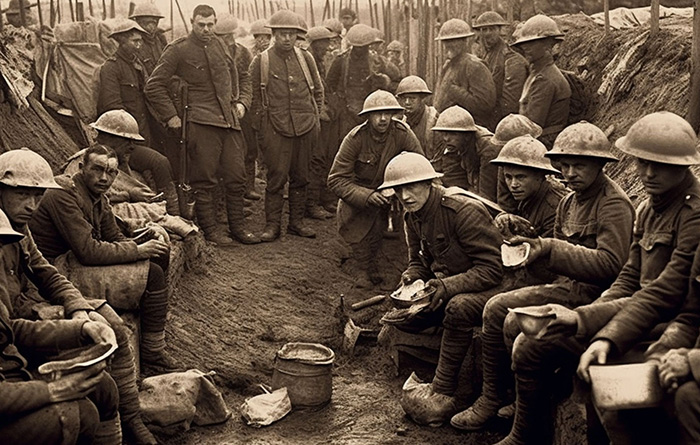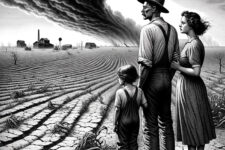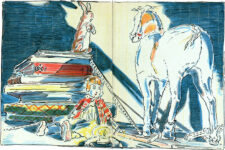
He is right. We are not youth any longer. We don’t want to take the world by storm. We are fleeing. We fly from ourselves. From our life. We were eighteen and had begun to love life and the world; and we had to shoot it to pieces. The first bomb, the first explosion, burst in our hearts. We are cut off from activity, from striving, from progress. We believe in such things no longer, we believe in war.
― Erich Maria Remarque, All Quiet on the Western Front
The quote from Erich Maria Remarque’s novel, All Quiet on the Western Front, encapsulates the profound disillusionment and existential crisis experienced by soldiers during World War I.
The novel, published in 1929, is narrated by Paul Bäumer, a young German soldier who, along with his classmates, is encouraged to join the army by their schoolmaster.
The story follows their journey from patriotic fervor to the harsh reality of trench warfare, which quickly shatters their illusions of glory and honor in battle.
This quote reflects a critical turning point in the narrative, illustrating the deep sense of betrayal these young men feel towards a society that glorified war and pushed them into the fray.
“He is right. We are not youth any longer”: This statement acknowledges the speaker’s sense of lost youth due to the war’s impact. They no longer feel the same youthful energy and desire to conquer the world.
“We are fleeing. We fly from ourselves. From our life”: This reveals the speaker’s emotional state. Instead of actively engaging in life, they feel the need to escape, even from themselves and their pre-war lives.
“We were eighteen and had begun to love life and the world; and we had to shoot it to pieces”: This juxtaposes the speaker’s pre-war optimism and love of life with the destructive reality of war. The “first bomb” and “explosion” symbolize the shattering of their innocence and their forced participation in destruction.
“We are cut off from activity, from striving, from progress”: This highlights how the war has not only robbed them of their innocence but also their motivation and sense of purpose. They no longer believe in the possibility of achieving progress or working towards a better future.
“We believe in such things no longer, we believe in war”: This is a stark statement about the dehumanizing effect of war. The speaker’s faith in the positive aspects of life has been replaced by the harsh reality of war, the only thing they seem able to believe in anymore.
In essence, this quote from All Quiet on the Western Front offers a poignant commentary on the loss of innocence, the disillusionment with societal values, and the deep psychological scars borne by soldiers.
It is a powerful indictment of the romanticization of war and a somber reflection on the profound and lasting impact of conflict on the human condition.









